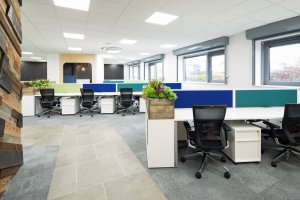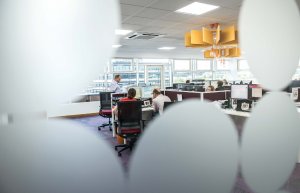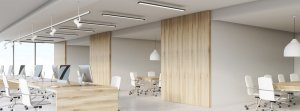
What are employees looking for from their employers?
Recruitment and retention are now key priorities for most business leaders.
But what’s driving so many people to change jobs? Learn more in our article
A category A fit out includes basic finishes to the floors, walls and ceilings – the space is finished but with no fixtures and fittings such as partitions, meeting rooms or individual offices laid out. The office space will be functional but not include the final specifications included in a category B fit out. Think of a category A fit out as a blank canvas that you can build your office on.
A category B fit out is a finished office space that has been tailored to the exact requirements of the client, resulting in a space that is ready for occupancy.
The framework and envelope of the building is in place but it is just a shell that is ready for the actual fit out. Services such as mains water systems and main electrical supply will usually be in place but things such as suspended ceilings, flooring, wall coverings, partitions, lighting and so on will not be installed.
Thinking about a new design for your office but don’t know where to start? Download your free guide here.
A Category B fit out involves installing everything that isn’t put in place in a Cat A fit out that is needed for an office to function, as well as the installation of a design aesthetic that enhances your working practices.
A Cat B fit out includes everything from IT infrastructure, audio visual and lighting, to complete installation of kitchen areas, reception areas, meeting rooms, workstations and furniture, décor, design and branding.
This is the most common type of fit out, whereby everything you need is installed and you can choose the layout and décor to make the space your own.

Recruitment and retention are now key priorities for most business leaders.
But what’s driving so many people to change jobs? Learn more in our article

As a company becomes more successful it often needs to recruit staff to manage the growing workload. Typically, the addition of extra bodies leads bosses to feel that they’ve outgrown their current office space and make an instant decision to relocate—despite this not always being necessary.

A few pointers to think about when considering an office refurbishment.

Read our comparison points to help you decide whether to relocate to a new premises or refit your current space.